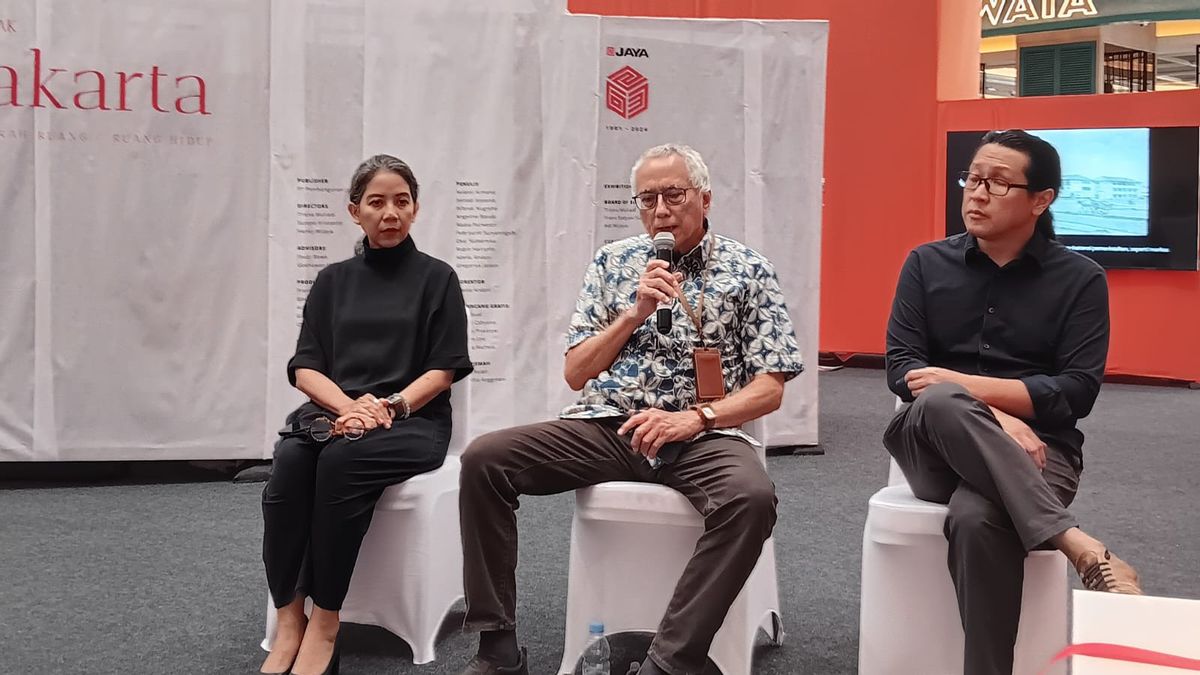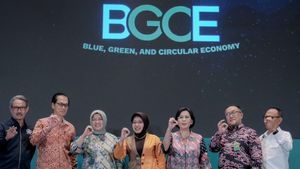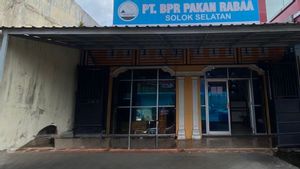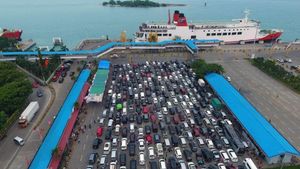JAKARTA - A book exhibition entitled Jakarta Movement: History of Life Rooms at Bintaro Xchange Mall 2, South Tangerang, from 18 to 27 October 2024. The exhibition, which was held to celebrate 63rd Birthday, PT Pembangunan Jaya, shows the journey of Jakarta's development from time to time.
The main focus was imposed on the transformation of living spaces starting from the Sunda Kelapa era to modern Jakarta. Jakarta's Motion Book: The History of Spaces is a monumental work documenting the history of Jakarta for more than 1500 years. This book thoroughly discusses changes in infrastructure and urban spatial planning, from colonial times to the modern era.
This exhibition was held to introduce to the public various important aspects in the history of Jakarta's development as reflected in the development of urban areas, transportation systems, urban governance, and settlements.
Through this exhibition, visitors can explore how Jakarta grows from a simple port city to a dynamic metropolitan activity center. The Jakarta Motion Book presents track records of urban infrastructure developments, including forts, canals, railroads, government buildings, to modern modes of transportation such as MRT and LRT.
This book not only tells about past travel, but also raises contemporary challenges faced by Jakarta, such as water management problems, integrated transportation needs, and inclusive residential development. This exhibition invites visitors to reflect on Jakarta's more fair and inclusive future development solutions.
As part of a series of events, discussions on the Jakarta Motion book will be held at the National Archives Building. This discussion will discuss the issue of water management as well as the application of the Transit Oriented Development (TOD) concept in the development of the city of Jakarta.
According to Frans Sunito, the Author and President of the Jaya Development University, this book was born from an urge to introduce and remind the public about Jakarta's long history.
"Jakarta used to only spread from the north, at the Fish Market, to the south, at the Merdeka Palace. However, now we see how rapid the development of this city is," he said in a media statement, Monday, October 21.
He also added that initially this book was planned as a volume, but along with the writing process, many things had to be included so that it became a monumental work.
SEE ALSO:
Meanwhile, Kurator Avianti Armand explained that this book not only highlights infrastructure such as toll roads or railroads, but also everything that humans build in Jakarta.
"The biggest change can be seen on its scale. From Sunda Kelapa to modern Jakarta, we can see tremendous scale differences," he said.
This exhibition is expected to provide new insights for visitors about the history and challenges faced by Jakarta, as well as raise ideas to create better Jakarta in the future.
The English, Chinese, Japanese, Arabic, and French versions are automatically generated by the AI. So there may still be inaccuracies in translating, please always see Indonesian as our main language. (system supported by DigitalSiber.id)

















